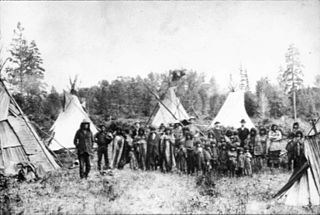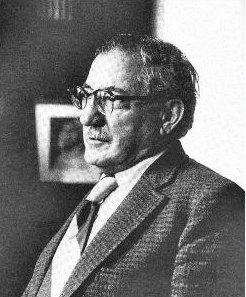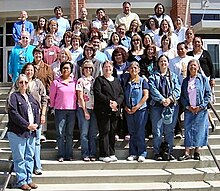
The Flathead Indian Reservation, located in western Montana on the Flathead River, is home to the Bitterroot Salish, Kootenai, and Pend d'Oreilles tribes – also known as the Confederated Salish and Kootenai Tribes of the Flathead Nation. The reservation was created through the July 16, 1855, Treaty of Hellgate.

Montana State University (MSU) is a public land-grant research university in Bozeman, Montana. It enrolls more students than any other college or university in the state. MSU offers baccalaureate degrees in 60 fields, master's degrees in 68 fields, and doctoral degrees in 35 fields through its nine colleges. More than 16,700 students attended MSU in the fall 2019, taught by 796 full-time and 547 part-time faculty. In the Carnegie Classification, MSU is placed among "R1: Doctoral Universities – Very high research activity", one of only two universities to receive this distinction with a "very high undergraduate" enrollment profile. The university had research expenditures of $129.6 million in 2017.

The Confederated Salish and Kootenai Tribes of the Flathead Reservation are a federally recognized tribe in the U.S. state of Montana. The government includes members of several Bitterroot Salish, Kootenai and Pend d'Oreilles tribes and is centered on the Flathead Indian Reservation.

The Bitterroot Salish are a Salish-speaking group of Native Americans, and one of three tribes of the Confederated Salish and Kootenai Tribes of the Flathead Nation in Montana. The Flathead Reservation is home to the Kootenai and Pend d'Oreilles tribes also. Bitterroot Salish or Flathead originally lived in an area west of Billings, Montana extending to the continental divide in the west and south of Great Falls, Montana extending to the Montana–Wyoming border. From there they later moved west into the Bitterroot Valley. By request, a Catholic mission was built here in 1841. In 1891 they were forcibly moved to the Flathead Reservation.

The Kutenai, also known as the Ktunaxa, Ksanka, Kootenay and Kootenai, are an indigenous people of Canada and the United States. Kutenai bands live in southeastern British Columbia, northern Idaho, and western Montana. The Kutenai language is a language isolate, thus unrelated to the languages of neighboring peoples or any other known language.

The Pend d'Oreille or Pend d'Oreilles, also known as the Kalispel, are Indigenous peoples of the Northwest Plateau. Today many of them live in Montana and eastern Washington of the United States. The Kalispel peoples referred to their primary tribal range as Kaniksu.

Salish Kootenai College (SKC) is a private tribal land-grant community college in Pablo, Montana. It serves the Bitterroot Salish, Kootenai, and Pend d'Oreilles tribes. SKC's main campus is on the Flathead Reservation. There are three satellite locations in eastern Washington state, in Colville, Spokane, and Wellpinit. Approximately 1,207 students attend SKC. Although enrollment is not limited to Native American students, SKC's primary function is to serve the needs of Native American people.

The CSKT Bison Range (BR) is a nature reserve on the Flathead Indian Reservation in western Montana established for the conservation of American bison. Formerly called the National Bison Range, the size of the bison herd at the BR is 350 adult bison and welcomes between 50-60 calves per year. Established as a National Wildlife Refuge in 1908, the BR consists of approximately 18,524 acres (7,496 ha) within the Montana valley and foothill grasslands. Management of the site was transferred back to the Confederated Salish and Kootenai Tribes in 2022 from the U.S. Fish and Wildlife Service after more than a century of federal management and nearly two decades of negotiations.

William D'Arcy McNickle was a writer, Native American activist, college professor and administrator, and anthropologist. Of Irish and Cree-Métis descent, he later enrolled in the Salish Kootenai nation, as his mother had come to Montana with the Métis as a refugee. He is known also for his novel The Surrounded.

Tribal colleges and universities (TCUs) are a category of higher education, minority-serving institutions in the United States defined in the Higher Education Act of 1965. Each qualifies for funding under the Tribally Controlled Colleges and Universities Assistance Act of 1978 or the Navajo Community College Act ; or is cited in section 532 of the Equity in Educational Land-Grant Status Act of 1994.

Roland R. Renne was an American agricultural economics professor who served as President of Montana State College from 1943 to 1964. Renne was also active in Washington, D.C., and United States overseas agricultural economics work. He was the 1964 Democratic candidate for governor of Montana.
Corwin "Corky" Clairmont is a printmaker and conceptual and installation artist from the Confederated Salish and Kootenai Tribes of the Flathead Nation. Known for his high concept and politically charged works, Clairmont seeks to explore situations that affect Indian Country historically and in contemporary times.
I don't put work out that gives solutions but provokes questions. - Corky Clairmont

The Montana State University Library (MSU Library) is the academic library of Montana State University, Montana's land-grant university, in Bozeman, Montana, United States. It is the flagship library for all of the Montana State University System's campuses. In 1978, the library was named the Roland R. Renne Library to honor the sixth president of the university. The library supports the research and information needs of Montana's students, faculty, and the Montana Extension Service.
Marjorie Bear Don't Walk is an Ojibwa-Salish health care professional and Native American fashion designer. She is most known as an advocate for reforms in the Indian Health Service, and specifically the care of urban Native Americans. In addition, she is a fashion designer who has targeted career women, designing professional attire which incorporated traditional techniques into her clothing.

In Montana, TRAILS is a statewide consortium of academic libraries which includes all 23 of Montana's public, private and tribal community colleges and universities. TRAILS serves over 49,500 students, faculty, researchers and community members, providing access to over 4,000,000 library items. The consortium is expected to save seven million dollars over a five-year period. TRAILS maximizes the return on resource investment, enhances teaching and research, improves the user experience, and encourages shared expertise among members of institutions across the state.
Eldena Bear Don't Walk is an American lawyer, judge and politician. She is an enrolled citizen of the Crow Tribe of Montana and was the first woman to serve as the Chief Justice of that tribal court. She is also a descendant of the Confederated Salish and Kootenai Tribes. She has served as a judge for several other Tribal Courts. She is the chair of the Indian Law section of the State Bar of Montana.

The Montana State University Archives and Special Collections, also known as the Merrill G. Burlingame Archives and Special Collections, is located in Bozeman, Montana. The archives is on the second floor of the Renne Library on the Montana State University-Bozeman campus and consists of materials relating to the history of the American West, trout and salmonids, the Greater Yellowstone Ecosystem and other topics.
The Center for American Indian and Rural Health Equity (CAIRHE) is an official state of Montana research center based at Montana State University (MSU) in Bozeman, Montana. Founded in 2014, CAIRHE conducts research on topics including mental health, workplace trauma and occupational health, health care access, maternal health, sleep health, sexual and reproductive health, nutrition and food security, addiction and resilience, environmental health, oral health, and COVID-19.














